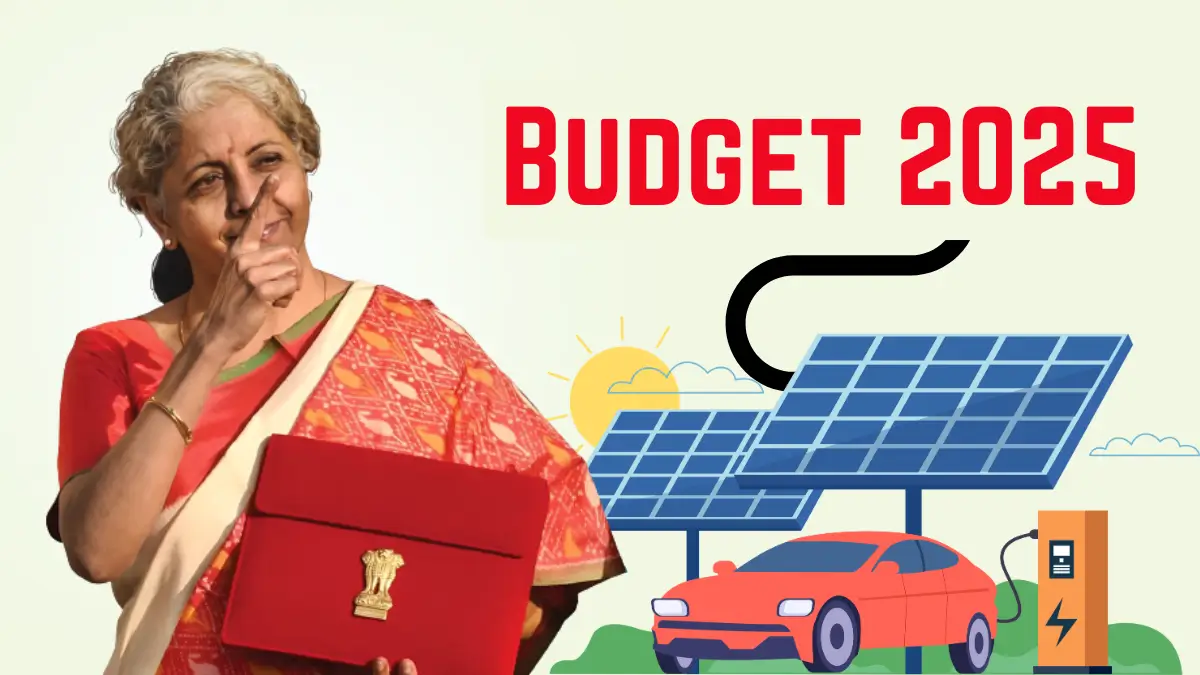
India’s Finance Minister Nirmala Sitharam has announced the Indian budget today for 2025-26, and as always, all eyes are on how the financial blueprint will shape key sectors of the economy.
This year, the spotlight is particularly bright on the electric vehicle (EV) industry and the broader auto sector, both of which are at a crucial juncture.
From incentives for domestic manufacturing of EV components to continued support for the “Make in India” initiative, this budget holds significant implications for the future of mobility in the country.
In this article, we highlight the specific announcements and policy measures outlined in the budget, analyzing their potential impact on EV adoption, auto industry growth, and the overall push towards a cleaner, more sustainable transportation landscape.
We’ll explore the details behind the headlines, and primary schemes, and examine how these budgetary provisions could accelerate the transition to electric vehicles and influence the trajectory of the traditional automobile industry.
Budget 2025 Highlights for the EV Industry
- Clean Tech Manufacturing Mission:
A national manufacturing mission will support clean tech manufacturing, including building the ecosystem for EV batteries, motors and controllers, and other related components. This aims to improve domestic value addition.
- Customs Duty Exemptions:
Cobalt powder, scrap of lithium, and lead (critical minerals for EV batteries) will be exempt from customs duty.
- Exemption for EV Battery Manufacturing Equipment:
25 additional capital equipment used for lithium-ion EV battery manufacturing will be added to the exempted capital goods list.
More Related to EVs and the Auto Industry:
- MSME Support:
Enhanced credit availability and support for MSMEs, including those in the auto component sector.
This can benefit EV component manufacturers as many are MSMEs. The increase in investment and turnover limits for MSMEs will help them grow.
- Make in India:
Continued focus on the “Make in India” initiative will encourage domestic manufacturing of vehicles, including EVs and their components.
- Logistics Improvements:
The transformation of India Post into a large logistics organization will improve supply chains for the auto industry, including EV manufacturers.
- Skill Development:
Five National Centers of Excellence for Skilling will be set up, which could include training for EV-related jobs. The expansion of IIT capacity also contributes to a skilled workforce.
- Infrastructure Development:
Increased focus on infrastructure development, including through PPPs and interest-free loans to states, will create a better environment for EV adoption (e.g., charging infrastructure).
- Mining Sector Reforms:
Reforms in the mining sector, including policies for critical minerals (used in EV batteries), will ensure a stable supply of raw materials.
- Deep Tech Fund:
The Deep Tech fund could potentially support EV-related startups and innovation.
Highlights Related to Indian Automobile Industry
- National Manufacturing Mission:
While focused on clean tech, the broader manufacturing mission will benefit the entire manufacturing sector, including the traditional auto industry.
- MSME Support:
As many auto ancillary units are MSMEs, they will benefit from increased credit availability and other support measures.
- Infrastructure Development:
Road and other infrastructure development is crucial for the overall auto industry.
- Bharat Trade Net:
This platform for international trade documentation could streamline import/export processes for auto manufacturers.

This budget has so much for middle class this time . 👍🏻